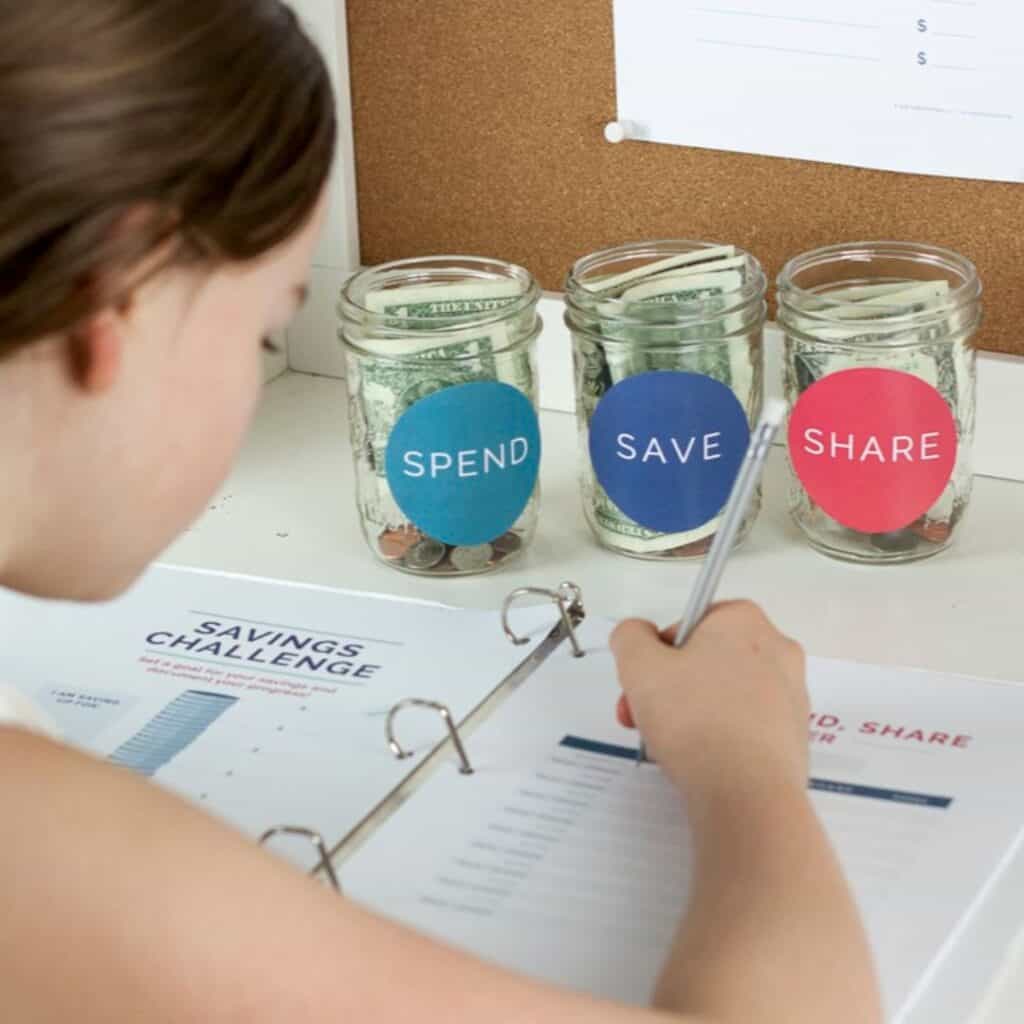Why Paying Kids to Get Good Grades Can Backfire – And What to Do Instead
Here’s what you need to know about motivating kids to get good grades – and what to avoid.

I’d like to meet the parent who hasn’t bribed their kids at least once.
We’ve all been there – a tricky situation where our kids simply WILL NOT do what we want them to no matter how much encouragement we give them.
So we tell them we’ll give them something in return if they comply – a treat, more screen time, or money – just so they’ll do what we need them to do.
These bribes are often used when the situation is critical – when major consequences are at stake if the kid doesn’t comply.
Nothing fits that description more than academic performance. How kids perform in school often determines where they go to college, what kind of profession they’ll have, or even if they’re able to graduate from high school.
So in order to motivate our kids to practice good study habits, the best way to get action is to pay them for good grades – right?
Well, yes and no.
First let’s look at the “yes” part of that answer:
Research shows that paying kids for good grades often does improve them.
Initially.
When kids receive compensation – whether it’s for doing chores, limiting screen time or doing well in school – there’s almost always improvement in behavior. The trash is taken out, screen time goes down, better grades and test scores are achieved.
But the question is – even if kids are able to achieve an A in Pre-Algebra or get a top score on a standardized exam with the cash incentives, what lesson does it teach and will those improvements last?
Psychological studies going back as far as the early 1970s have found that rewards programs often result in less engaged students. The studies show that students who receive rewards are being trained to do the minimum amount needed to get the reward – not developing an intrinsic motivation for learning or a work ethic that will ultimately make them more successful academically.
Alfie Kohn, author of Punished by Rewards, told NPR: “research confirms that the bigger the reward, the more damage it does by encouraging students to focus on the goodies, not the learning. The more you use cell phones, T-shirts, money or whatever, the more you undermine motivation for becoming engaged and prolific learners,” he said.
The other downside to giving kids monetary incentives is that they put the responsibility for learning on the parent – who needs to come up with more rewards for sustained results and also has to continue to monitor success.
As Richard Ryan, a professor at Rochester University told The Sunday Times: “If a parent were to say, ‘I will give you this if you achieve all As’, the child is likely to do it for that reward. It also means that subsequently, he will think, well, the only reason to learn is to get the reward. If I am not getting the reward that I want, I am not interested in learning.”
And if a child decides the money is no longer worth the effort? The parent is out of luck.
Interested in getting your kids started on chores? My four-lesson course will teach you how to get started, avoid nagging & power struggles, and keep your kids motivated. Click here or the image below to learn more.

What to do instead:
Carol Dweck, a psychologist and author, suggests it’s better to reward your child verbally. Once your child has achieved a goal, say how the effort and studying paid off and how you’re proud he improved his grades.
Richard Ryan suggests that after a child does well, the parent can suggest a celebration, like going to a special restaurant for a meal. He argues that this is not a reward but just an acknowledgment and celebration of a goal achieved.
“A reward that acknowledges a great effort is more effective than one that is promised upfront for getting an A. Appreciation is always a better motivator than control. “ Ryan says.
And if you have a kid who is completely unmotivated:
Amy McCready, the Founder of PositiveParentingSolutions.com, gave this advice in a New York Times article on how to manage a kid who is unmotivated to get homework done:
- Make sure homework is done before screen time: Although screen time could be viewed as a reward, it’s also teaching kids how to set priorities. Other activities that are more interesting to kids could be replaced for screen time.
- Emphasize the action, not the grade: Focus on the effort your child has put into homework, however small, and praise that effort. Also, remind kids that persistence will pay off.
- Give them the responsibility: letting children manage their own school work, for better or worse, is the best way to prepare them to navigate life’s ups and downs and become who they want to be.
The bottom line:
If your goal for your child is to simply achieve good grades in the short term, then giving them a financial incentive will most likely work. But bear in mind the harm that may occur in the long run – as they enter college or the working world, your child may still lack the internal motivation to perform well. So the results are short lived.
On the other hand, if you instead reward your child verbally, make sure their homework is done before other fun activities and let them manage their own school work, the results may not be immediate, but in time your child will be motivated for the right reasons. And this motivation will carry them to success into college and adulthood.
The Kids Money Management Toolkit has everything you need (except money!) to begin giving your kids an allowance. In addition to guidance and advice, you’ll also receive Save, Spend, and Share jar labels, a Kids Money Ledger, a Savings Challenge Sheet, a Jobs-for-Hire Sheet, and a Kids Allowance Contract. Click here to learn more.
See related:
Raise Kids Who Are Self-Starters and Put an End to Homework Fights
How to Raise Kids Who Are Motivated to Work Hard on Their Own
How to Motivate Kids to Do Things They Don’t Want to Do
The Difference Between Praise and Encouragement in Parenting and Why it Matters
What to do next…
1. Subscribe to Self-Sufficient Kids’ email list.
Like what you read here and want to learn more? Every Thursday I’ll send you one parenting tip about raising self-sufficient kids and creating the peaceful relationship you yearn to have with your child. Click here to sign up.
2. Take one of my quizzes!
Find out if you’re raising a self-sufficient kid (click here) or if you’re doing too much for your kids (click here). At the end of each quiz, you’ll be asked to provide your email address to see the results.
3. Get your kids started on chores.
Learn how to get your child started on chores (& keep them motivated + avoid power struggles) by enrolling in my Get Your Kids Successfully Started on Chores course. Click here to learn more and sign up.

About Kerry Flatley
Hi! I’m Kerry, the mother of two girls and a certified parent educator. I believe it is possible for parents to have a supportive, loving, and warm relationship with their kids while raising them to be independent and ultimately self-sufficient. Over the years, I’ve read numerous books and articles that support this belief and I’ve put these ideas into practice with my own kids. Read more about me and Self-Sufficient Kids here.


